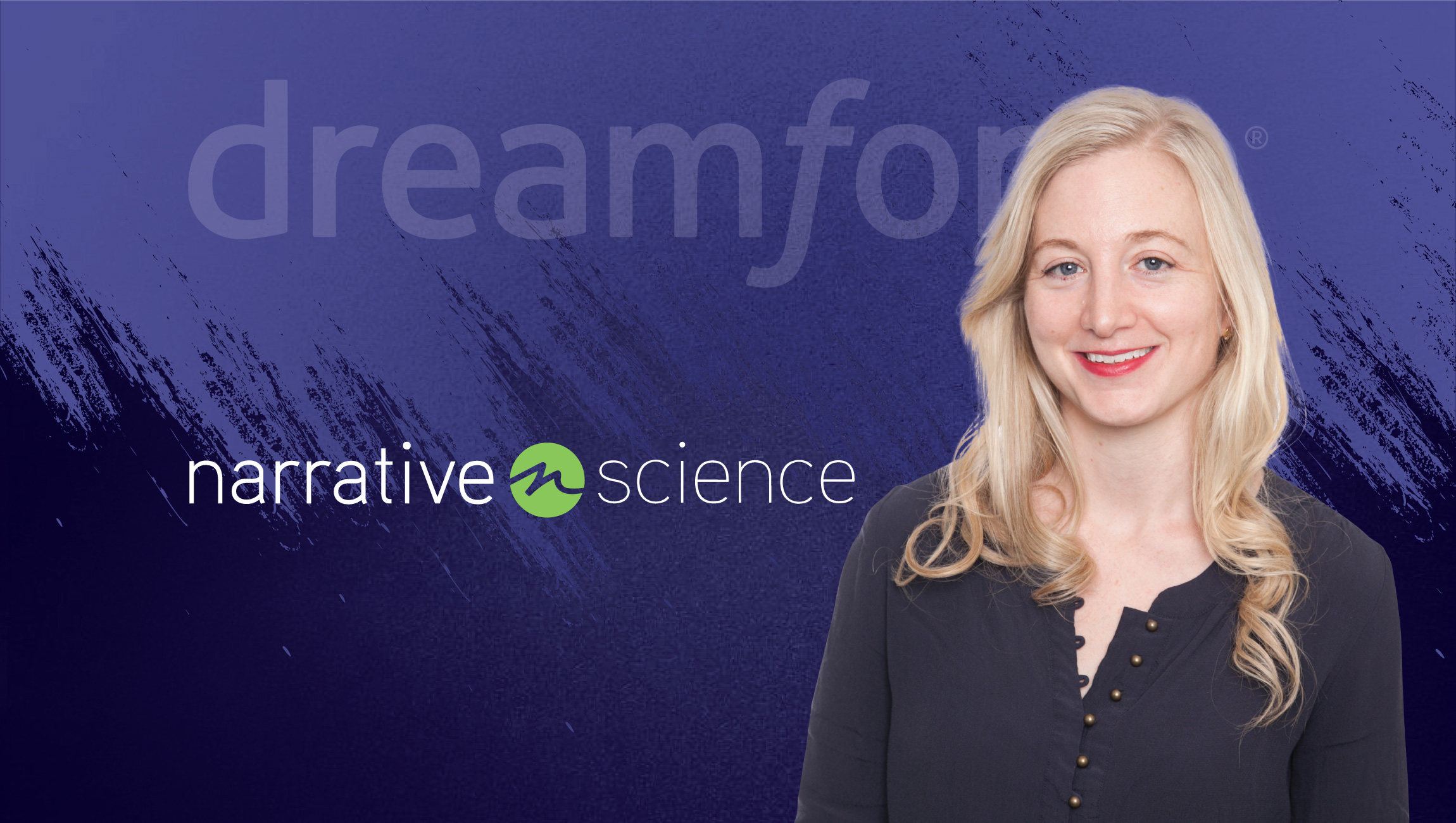Could you tell us about your role and the team/technology you handle at Narrative Science?
I’m the General Manager on the Integrations and Business Intelligence business. I manage our AI-powered products that are integrated with Tableau, Qlik, and Power BI.
What is the data engine driving your next-gen AI platform? How does your product help companies to make more accurate data-driven decisions?
Our hypothesis is that the easiest way to understand data and insights is through stories and language. We have two products that do just that. The first, Quill, is an AI-powered Data Analytics platform that turns data into a dashboard report and writes narratives about the findings in a matter of minutes. The second, Lexio, is also an AI-powered Data Analytics platform, but that turns data into a written narrative. It instantly turns enterprise data sets into easy-to-understand narratives and stories.
If I were to sum it up, our technology takes information, analysis, visuals, dashboard tools, charts, and other information and turn them into stories that anyone in the business can understand instantly. In doing this, we’re freeing up anyone who has to deal with data (which is basically everyone) to do more impactful and meaningful work that affects the business’ bottom line. We’re taking the guesswork out of data analysis by giving everyone in the business the information they need right when they need it. You can think of it like a “news feed for your business” – the most important things you need to know about your business are right at your fingertips. And it can all be accessed from a computer or mobile device.
We have heard about the extensive applications of AI in Marketing, Sales, and B2B/Enterprise collaboration tools. What differentiates your AI offerings from the league?
Our key differentiator is language. There are a lot of AI products out there, but they don’t always deliver information in a way that makes it easy for business users to understand or implement. Our goal is to make AI intuitive, reproducible, and scalable. At the end of the day, what’s unique about our products is the delivery mechanism. Everyone wants insights on the data that their company is collecting, without having to spend a bunch of time figuring out what that is. We’re delivering that through language and in plain-English – something everyone can easily understand and be comfortable with.
What kind of training and technology skills are needed to learn, deploy and adapt to this tool? Would you be providing support and training to new customers?
We provide support and training for our products. But one of the great things about our tools is that they don’t require a lot of training to use. The output is language, so it doesn’t take a lot of instruction to learn how to interpret and understand the results. The product itself is configuration-free, but we do have a process for enabling customers to use extensions. It instantly writes stories and integrates with multiple Business Intelligence and Data Analysis tools. Lexio specifically integrates with Salesforce, while Quill integrates with Qlik, Tableau, and Power BI. Our users generally need more instruction when they want to add customization to our products, which we help with every step of the way.
How do companies like Salesforce, Google and Amazon push the bar higher for Products in AI?
These companies have a ton of resources at their disposal, including financial resources and massive amounts of data to work with. The key thing to understand about AI is that results and quality of any AI product are dependent on the quality and quantity of data you have available. That’s what brought on this second age of AI. We have more data than ever before. In fact, the size of our data universe doubles every two years. Couple that with the fact that we have massive compute power, we can do some pretty interesting things. Companies like Salesforce, Google, and Amazon also serve massive and diverse sets of audiences. They’re solving many different problems that result in product innovation, which helps them keep pushing the bar higher.
What pulls you to Dreamforce? How do you see such events making an impact on Marketing, Sales, and RevOps teams?
We’re really excited to be at Dreamforce this year. We’ve been a longtime Salesforce customer and have had a productive relationship for a number of years. We’ve experienced firsthand how AI tools like Einstein and Inbox make RevOps more effective. So we’re excited to see what Salesforce has in store to make that business function even more efficient. We’re also partnered with Salesforce. Our new product, Lexio, embeds within Salesforce and instantly turns Salesforce data sets into easy-to-understand narratives and stories, helping RevOps teams understand and act on their KPIs via data storytelling. I’m also excited to present Lexio at our booth on the show floor and speak on a panel at Dreamforce this year about how AI can accelerate the growth of your business.
Could you tell us about the future of AI Reps for RevOps and Product Development?
We believe that AI is here to make business more efficient and effective. So in addition to our tools, when you look at Marketing and Sales Automation tools that use AI, they reduce competitive motions involved in RevOps business functions. These can be simple things, like scheduling meetings, enriching leads, or developing Marketing strategies – all necessary things that take up a lot of time, but that you could be spending doing higher impact work. I think the goal with AI in RevOps teams, and ours, is to free those people up to do more strategic thinking and less mundane tasks. When you think about the Salespeople and Marketers, you want them doing things like thinking about strategic accounts and developing long term strategy. You don’t want them searching through inboxes and scheduling meetings, nor spending a bunch of time researching an inbound lead because they don’t know anything about the company.
What would be the most powerful technology development of the decade for you?
Generally speaking, the one that has changed everyone’s life is natural language interface. Instead of a specific product, in general, the concept of language is pretty transformative. People tend to think of this as individual products, like chatbots that help with customer service or Siri on your iPhone. They all have a common trait. You used to have to interface with these technologies using the right code and it required a lot of technical prowess because the systems were picky and required specific syntax. Now anyone that can read can interact with these really powerful AI systems, and that’s been the most transformative development in my eyes.
Keelin McDonell is the General Manager of business intelligence and integrations at Narrative Science, an AI-powered software startup that turns huge amounts of data into plain-English stories.
Narrative Science is the new way businesses empower their employees with data. With its products, Quill and Lexio, Narrative Science is the leading data storytelling company, trusted by customers like Deloitte, MasterCard, USAA, and members of the U.S. Intelligence community. Both data analysts and businesspeople rely on Narrative Science to automate their data analysis and get the story hidden in their data in a way that helps anyone understand and act on it.











